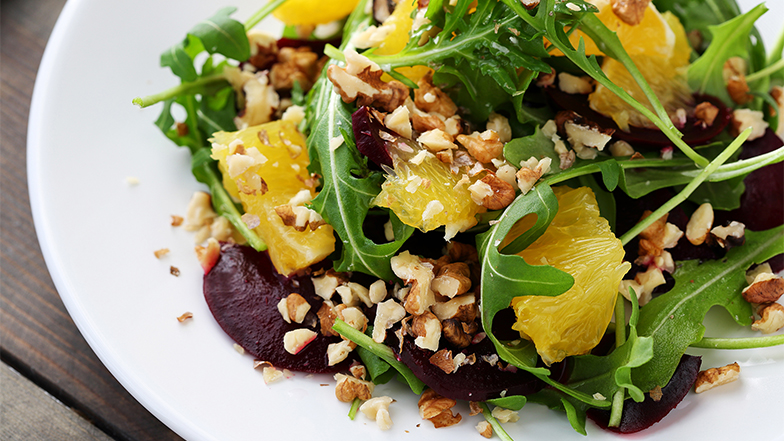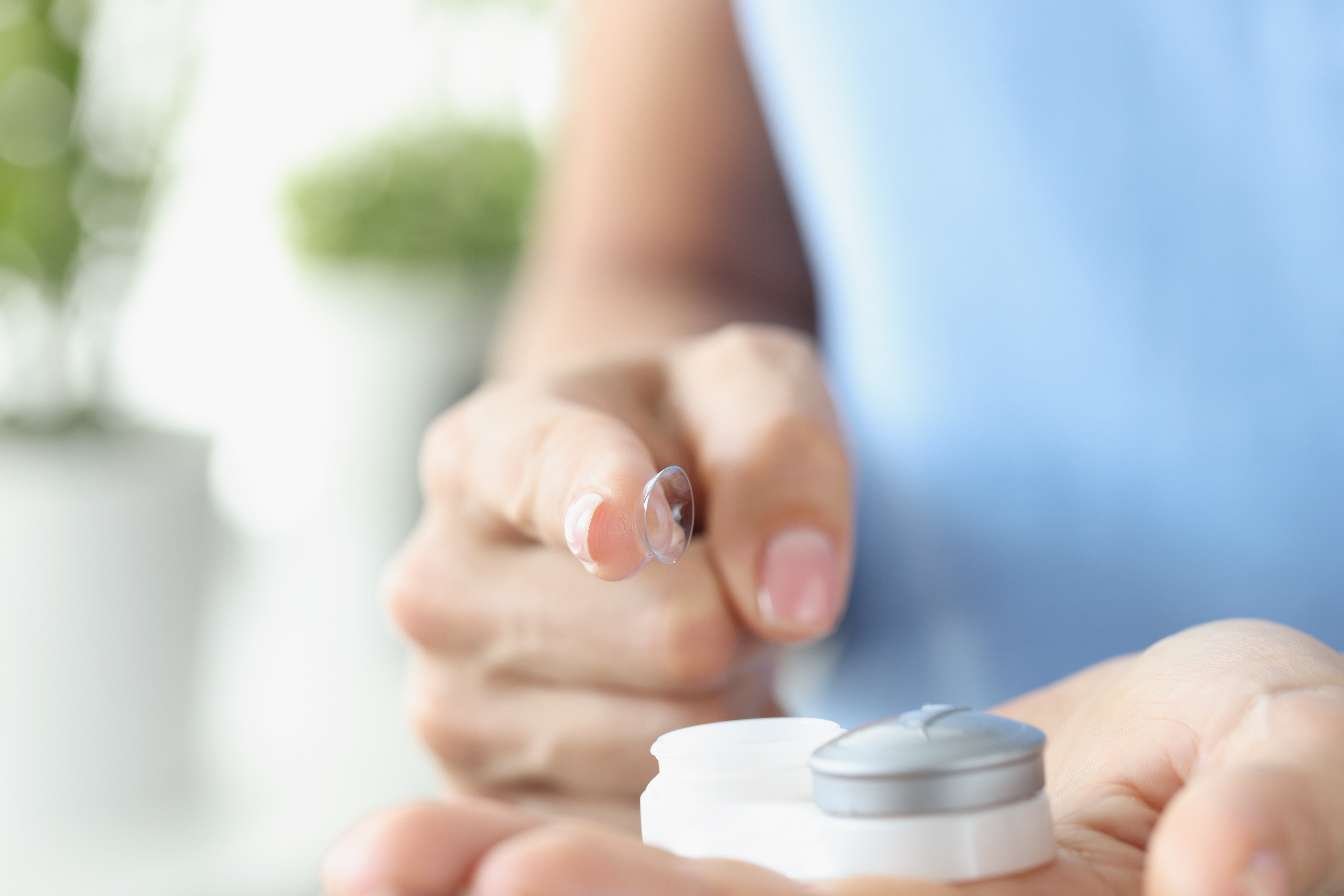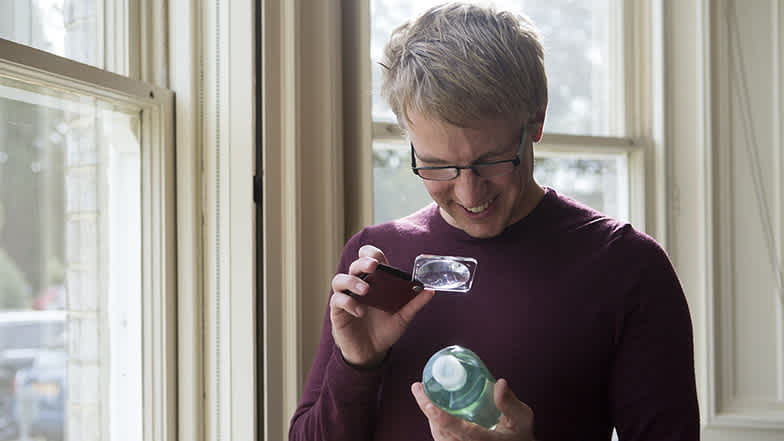There are many ways to look after your eye health, including practising good eye care, attending routine eye tests and eating a healthy diet. Although hereditary factors, like inherited eye conditions, play a part in eyesight and eye health, good lifestyle choices can also help you maintain healthy eyes.
Get regular eye tests
Everyone can benefit from regular eye tests, even people with no known eye problems. Your optometrist can perform a dilated eye exam to check your overall eye health and detect common eye conditions, like glaucoma or cataracts, before symptoms arise.
The NHS advises all adults receive an eye test every two years or sooner if they have any concerns about their eye health. Some people need an eye test more frequently than every two years, including those who:
Have a family history of glaucoma and are aged 40 or over
Are 70 or over
Are a child with a known eye problem or who wears glasses
Have diabetes (Source: NHS)
Some people are eligible for free eye tests due to their age or because they have or are at risk of an eye condition.
The NHS offers free eye tests for people who are:
Under 16 or 16-18 and in full-time education
40 and over with a family history of glaucoma
60 and over
Diagnosed with, or are at risk of developing, glaucoma
Diagnosed with diabetes
Prisoners on leave, people eligible for an NHS complex lens voucher and people receiving benefits may also qualify for free eye testing.
People who cannot attend an optician's appointment in person may be eligible for a home visit eye test. A community optometrist can provide a home eye test in a person's home, a residential or care home, daycare centre or other location. Contact your optician or GP to find out how to arrange an eye test at home.
Although medical professionals recommend regular eye check-ups for everyone, if you experience any vision problems, sudden changes in eyesight or other eye problems, see your optometrist or eye doctor for medical advice straight away. You do not need to wait for your routine eye exam.
Get help to stop smoking
Smoking can damage the eye's blood vessels, optic nerve and other delicate tissues. It can also contribute to eye diseases that can lead to blindness, like age-related macular degeneration (AMD) and cataracts, and accelerate or worsen symptoms of diabetic retinopathy in people with diabetes. The sooner you stop smoking, the sooner the benefit to your overall health and eye health.
Many charities and organisations offer ways to help you quit smoking, including the NHS stop smoking service, British Lung Foundation and Cancer Research UK.
Follow a healthy diet
A healthy diet is essential for maintaining good eye health. Aim to eat a balanced diet with foods rich in antioxidants, vitamins and minerals.

Some of the foods good for eyesight include:
Green leafy vegetable
Kale, spinach and collards are all green leafy vegetables that contain vitamin C, zeaxanthin and lutein, which all contribute to good eye health.
Citrus fruits
Lemons, grapefruits and oranges are rich in vitamin C, which can reduce the risk of developing cataracts (Source: Ophthalmology).
Colourful vegetables
Bell peppers, sweet potatoes and other brightly coloured vegetables contain vital nutrients to support eye health.
Meat
Meat, particularly beef, contains high levels of zinc, which is an enzyme found in the eye.
Oily fish
Oily fish, like sardines, mackerel and tuna, are rich in omega-3 fatty acids, which help protect the eyes from eye disease.
Nuts, legumes and seeds
Nuts and seeds, like peanuts, walnuts, lentils, sunflower seeds and flax seeds, all contain omega-3 fatty acids, essential for helping your eyes stay lubricated.
Eggs
Eggs are rich in lutein, zeaxanthin, vitamins and zinc, all supporting healthy eyes.
Carrots
The old myth of carrots being a food good for your eyes has an element of truth – carrots contain high levels of carotene and vitamin A, which helps the retina absorb light.
Keep active with regular exercise
Regular exercise is vital for staying fit and maintaining a healthy weight. Good overall health can reduce risk factors for developing health conditions, like high cholesterol, high blood pressure and diabetes, which can all increase the risk of developing eye conditions such as glaucoma and diabetic eye disease.
Adults should aim for 75 minutes of vigorous or 150 minutes of moderately intense exercise per week, spread over 4-7 days. Children and young people need a mixture of cardiovascular and strength exercises and should aim for moderate to intense activity for an hour every day.
Adults aged 65 and over should be physically active as much as possible in their daily lives. Ideally, they should participate in activities that help balance, strength and flexibility at least two days a week and aim for moderate to intense exercise for at least 150 minutes a week, depending upon current fitness levels (Source: NHS).

Wear sunglasses
Wearing sunglasses is essential for optimal eye health. Research suggests that damage from UV rays can cause a form of eye cancer called conjunctival melanoma (Source: The University of Manchester) and can harm the cornea, retina and other tissues in the eyes. Sunglasses filter harmful ultraviolet rays to avoid sun damage to the eyes. Always check that sunglasses have a CE Mark or British Standard safety mark and offer protection from UVA and UVB radiation to ensure adequate UV eye protection.
Give your eyes a break from screen time
Too much time staring at a computer screen, phone or another device can impact eye health and cause eye strain. Staring at a screen reduces blinking and can lead to sore, irritated, dry eyes and blurry vision. To avoid eye damage and maintain healthy vision, take regular breaks from the screen to let your eyes rest.
Use protective eyewear
Some activities, jobs, hobbies and sports can put you at higher risk of sustaining an eye injury or damaging your eyes. Always look after your eyes and prioritise eye safety by wearing protective eyewear if appropriate. An injury or damage to the eye can lead to eye problems, like a retinal detachment.
Workplaces are obliged to provide safety glasses if there is any risk to eye health, like wood or metal shavings entering the eyes.
People who play ball and racket sports, where a blow to the eye is more likely, can wear suitable protective eyewear to protect from injury.
Safety goggles are essential for some hobbies, like DIY or crafting.
Practice good contact lens hygiene
If you wear contact lenses, you need to pay extra attention to your eye health. Always follow the instructions from your ophthalmologist or optometrist on how to care for your contact lenses. Wash your hands before touching your eyes, store and handle your contact lenses correctly, remove them before going to sleep, and only use the appropriate solution to clean them (don't rinse them in tap water).
Good contact lens handling and eye hygiene are vital for avoiding eye infections that could become serious and may even lead to vision loss.

Conclusion
There are various ways you can look after your eyes to improve eye health and maintain vision. Eating a balanced diet, living a healthy lifestyle, stopping smoking and wearing sunglasses and protective eyewear when appropriate all help preserve eye health. Attend regular eye tests to detect any issues early on, and see your ophthalmologist for help managing existing eye problems.

Medically reviewed by: The Royal College of Ophthalmologists on 26/09/2022
Edited by: Nick Astbury FRCS FRCOphth FRCP Clinical Associate Professor LSHTM
The Royal College of Ophthalmologists champions excellence in the practice of ophthalmology and is the only professional membership body for medically qualified ophthalmologists. The RCOphth is unable to offer direct advice to patients. If you’re concerned about the health of your eyes, you should seek medical advice from your GP, optometrist or ophthalmologist.


